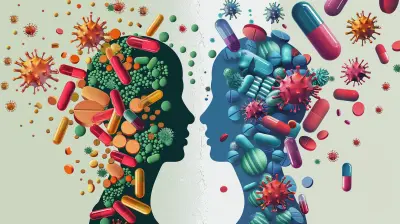The Link Between Healthy Fats and Balanced Hormones
25 June 2025
Let’s face it—we've been afraid of fat for way too long. For years, the word “fat” was basically a curse in the health world, blamed for everything from weight gain to heart disease. Low-fat diets? Oh, they ruled the 90s. But science has (thankfully) moved on, and we're finally starting to see the truth: fat isn’t the enemy.
In fact, healthy fats are essential—especially when it comes to keeping your hormones in check. Yep, your hormones, those tiny chemical messengers that control everything from your mood and metabolism to your sleep and sex drive, need healthy fats to function properly.
So, let’s dive deep into the fascinating link between healthy fats and balanced hormones. Trust me, once you understand the connection, you’ll never look at avocados the same way again.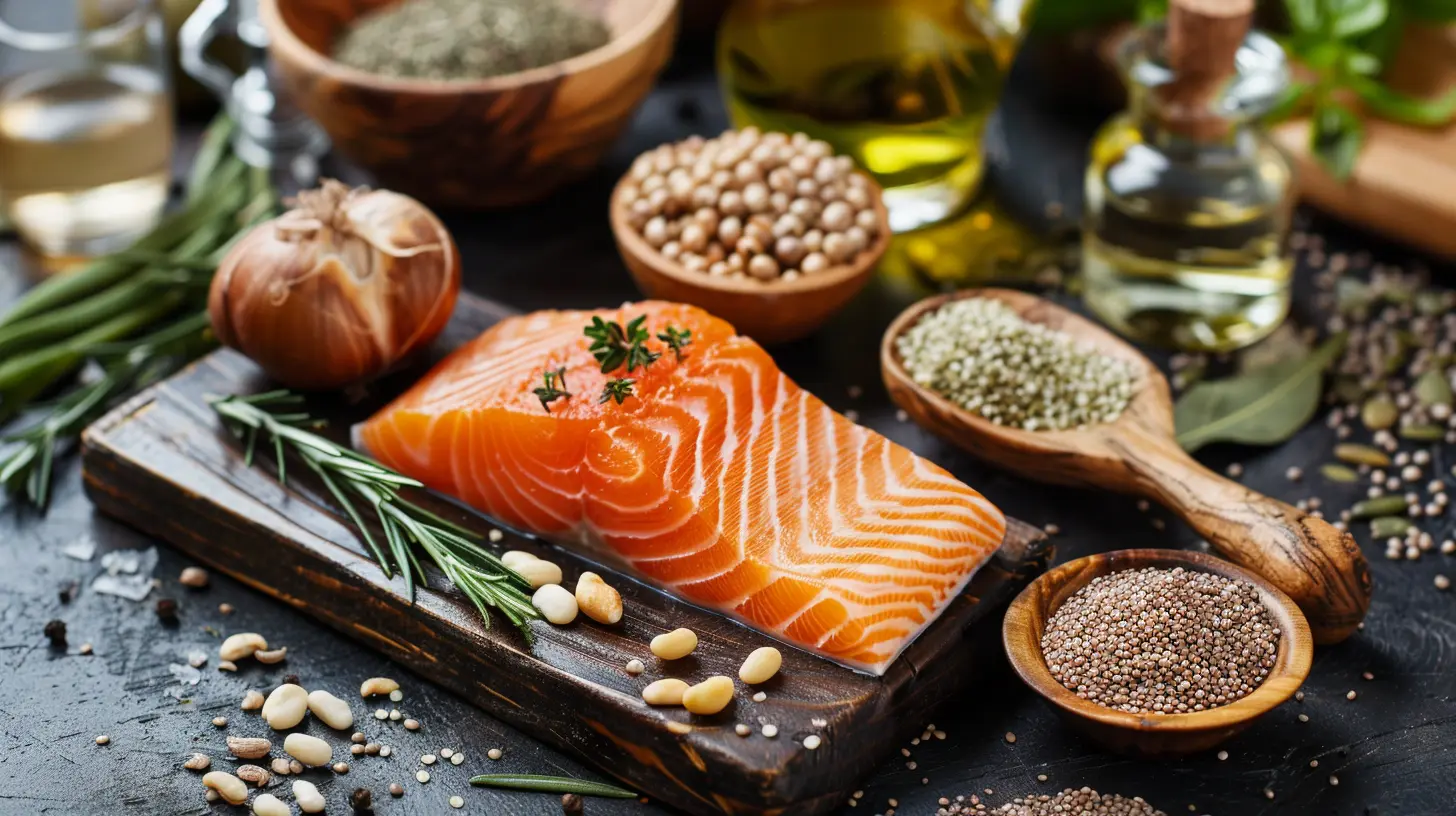
What Are Hormones, and Why Should You Care?
Before we get into fats, let’s get crystal clear on hormones.Hormones are like your body’s text messages. They’re chemical messengers that travel through your bloodstream, sending signals to your organs and tissues. They help regulate nearly every process in your body—think metabolism, energy levels, body temperature, growth, sexual function, and even your mood.
When your hormones are nicely balanced, you feel pretty amazing. But when they’re out of whack? You could feel sluggish, cranky, anxious, gain weight unexpectedly, or even struggle with things like fertility, insomnia, and chronic fatigue.
So yeah, hormones are kind of important. And how well they function depends a lot on what you put on your plate—especially fats.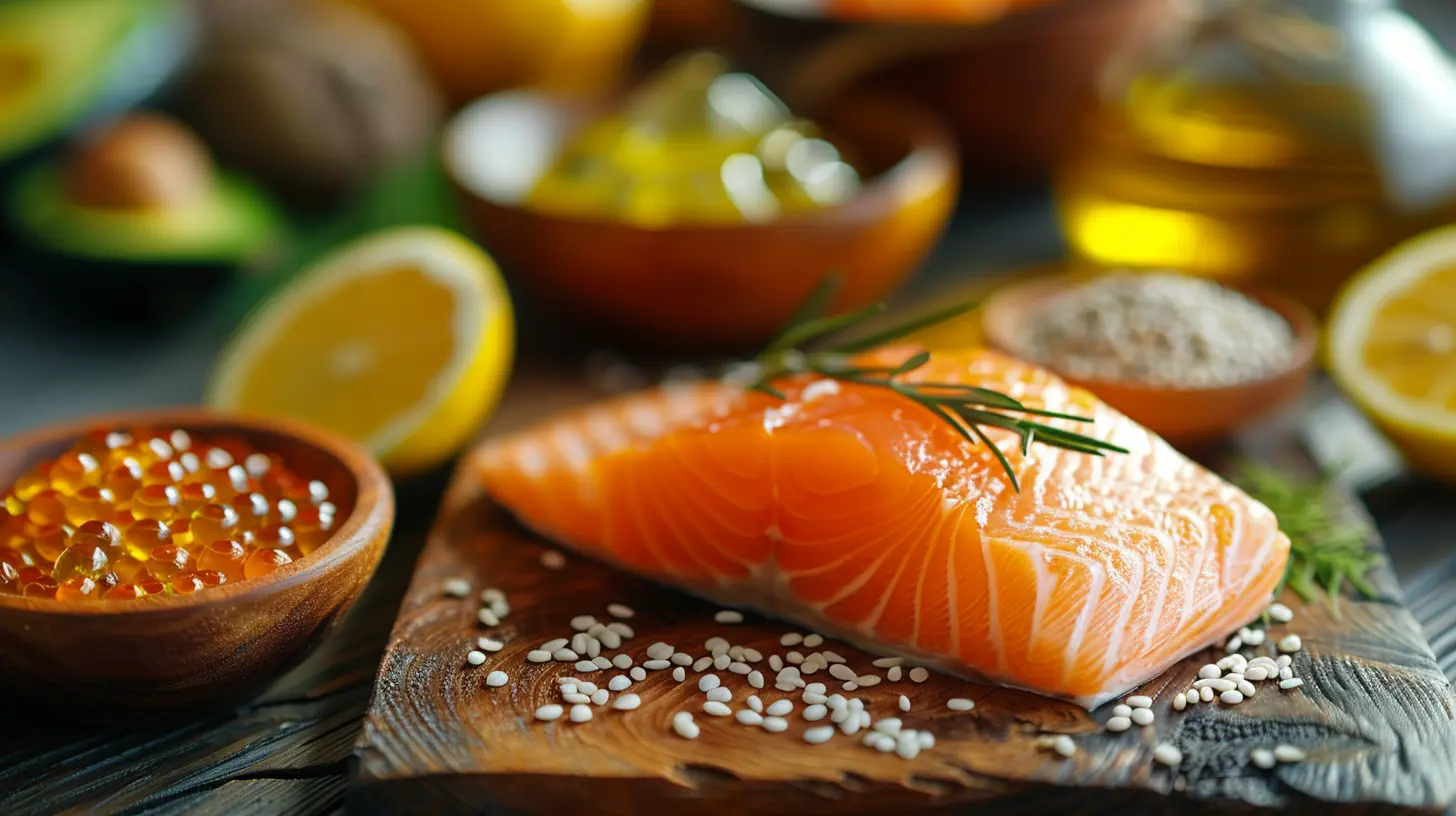
Healthy Fats vs. Unhealthy Fats: Know the Difference
Let’s clear up a common myth: not all fats are created equal.There are three major types of fats you’ll encounter in your diet, and not all of them are good news for your hormones:
1. Healthy Fats (Your Hormones’ Best Friends):
- Monounsaturated fats – Found in olive oil, avocados, nuts, and seeds- Polyunsaturated fats – Includes omega-3 and omega-6 fatty acids, found in fatty fish, flaxseeds, chia seeds, and some vegetable oils
These fats are anti-inflammatory, heart-friendly, and crucial for hormone production and balance.
2. Unhealthy Fats (The Hormone Disruptors):
- Trans fats – Found in processed foods, baked goods, and fried items. These are the actual bad guys.- Excess saturated fats – While some saturated fat is okay, too much (especially from processed foods and red meat) can throw hormone levels off.
So, the goal isn’t to avoid fat altogether—it’s to choose the right kinds of fats that support your hormone health.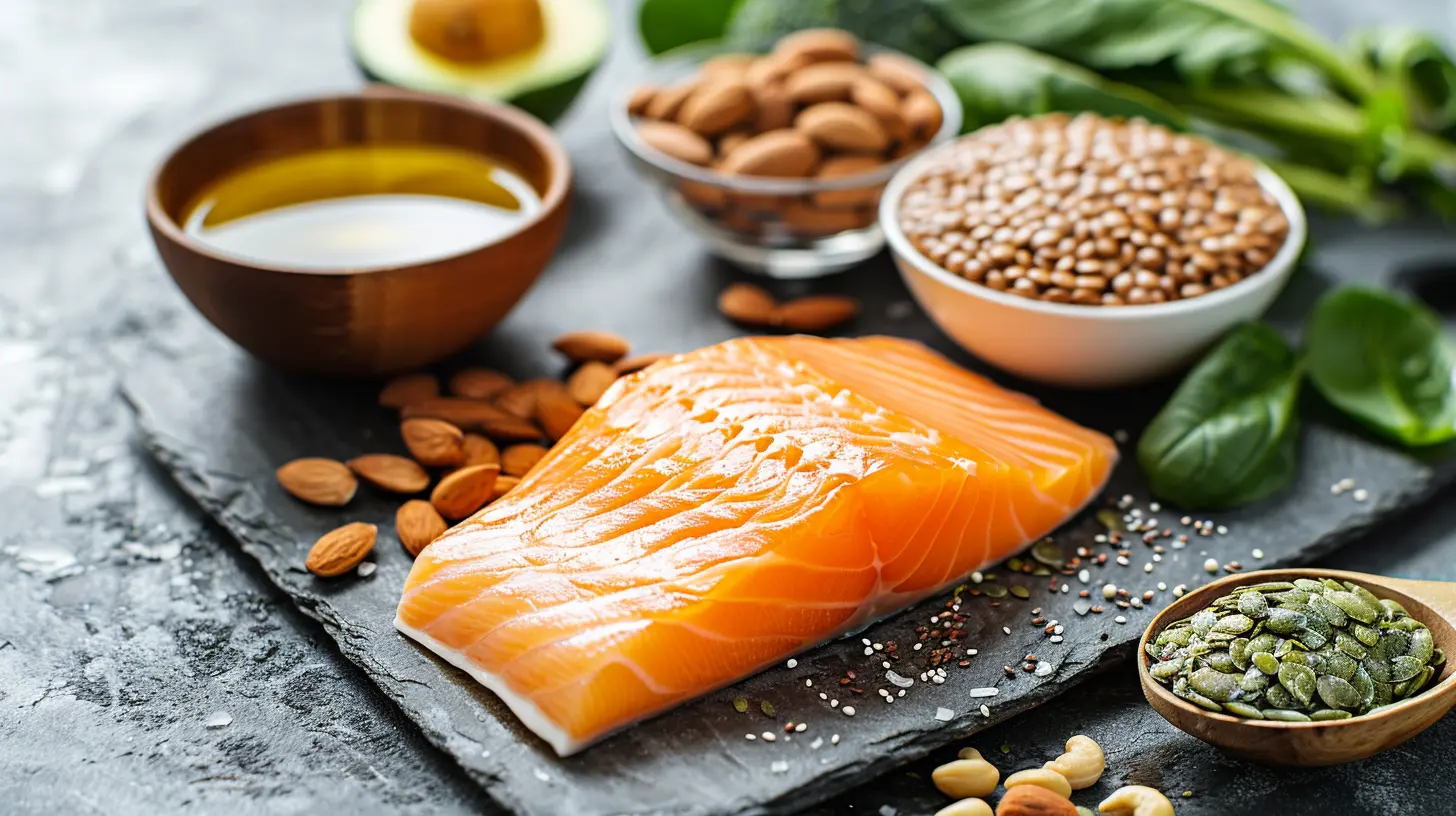
How Healthy Fats Help Balance Your Hormones
Now, let’s get to the juicy part—how healthy fats actually support your hormones. Here’s what they do behind the scenes:1. They’re the Building Blocks of Hormones
Your body uses cholesterol and fat to make steroid hormones—like estrogen, progesterone, testosterone, and cortisol. No fats? No raw materials to build those key hormones.Think of it like trying to bake a cake without flour. You simply can’t do it. Without enough healthy fats, your body struggles to produce hormones at optimal levels.
2. They Improve Cell Sensitivity to Hormones
Your hormones don’t just float around. They need to bind to receptors on your cells to get their message across.Healthy fats make cell membranes more fluid and responsive, improving the way your cells "listen" to hormonal messages. It’s like amplifying a speaker so your body hears the command loud and clear.
3. They Reduce Inflammation
Chronic inflammation? It messes with your hormones big time.Omega-3 fatty acids (found in fish like salmon, sardines, and mackerel) are powerful anti-inflammatories. They help calm the body down, keeping your cortisol (the stress hormone) from spiraling out of control.
4. They Help Regulate Blood Sugar
Blood sugar swings can lead to insulin resistance—which can tip off a hormone domino effect (yep, we're talking PCOS, weight gain, and fatigue).Healthy fats slow down digestion and stabilize your blood sugar. When you pair fats with carbs or protein, your glucose levels stay smoother. No wild spikes, no energy crashes.
5. They Support the Adrenal and Thyroid Glands
Your adrenal and thyroid glands are uber important in hormonal regulation.Adrenals pump out cortisol (your stress-response hormone), while the thyroid controls your metabolism. Both rely on adequate fats and cholesterol to function properly.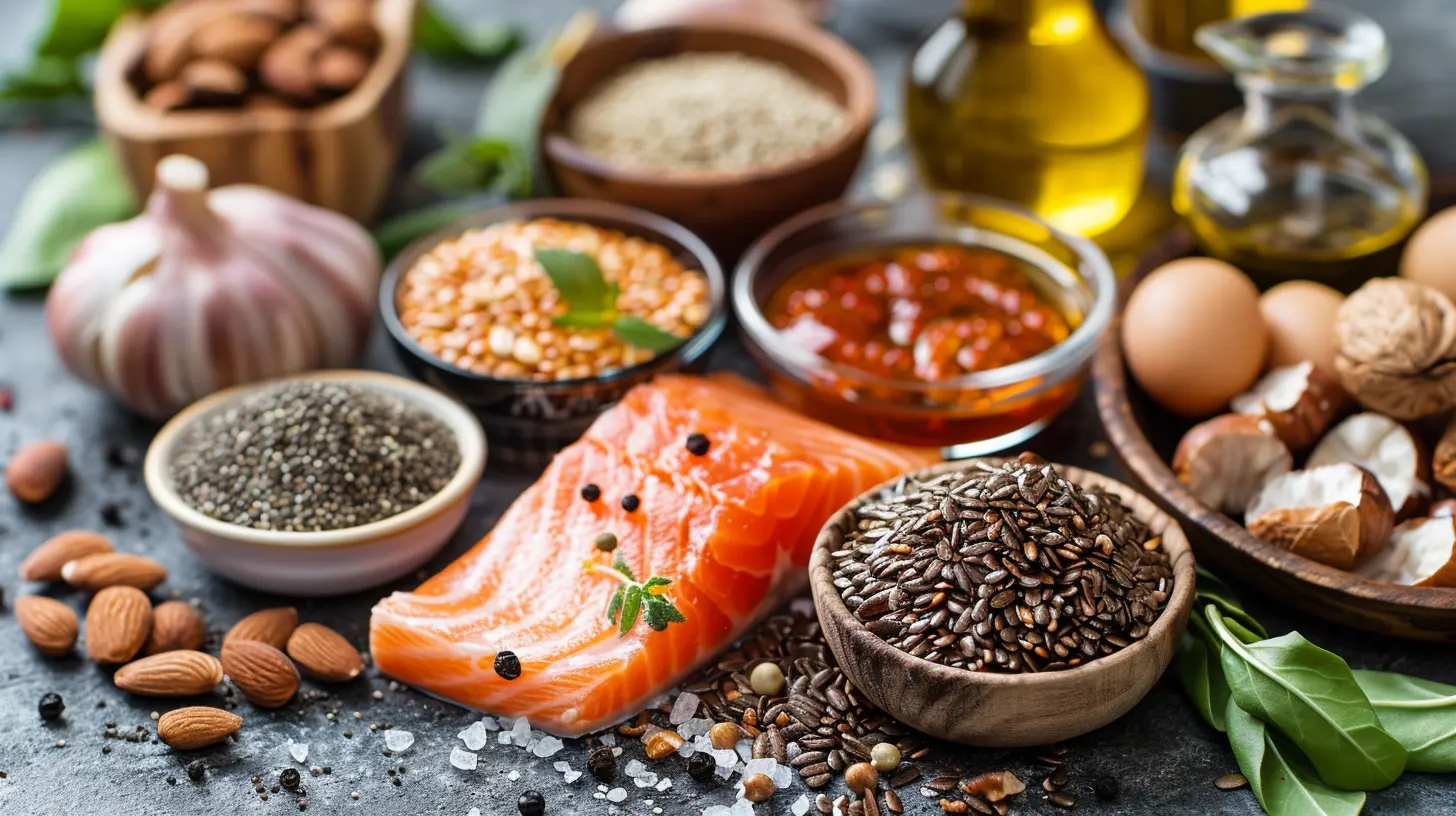
The Best Healthy Fats to Add to Your Diet
Wondering what to eat to start giving your hormones the love they deserve? Here’s a go-to list of hormone-balancing, fat-rich foods:🥑 Avocados
Packed with monounsaturated fats, fiber, and potassium. They support estrogen and progesterone balance and are basically hormonal gold.🐟 Fatty Fish
Think salmon, trout, mackerel, and sardines. Rich in omega-3s, which reduce inflammation and support brain and hormone health.🥜 Nuts and Seeds
Almonds, walnuts, flaxseed, chia seeds, pumpkin seeds—there’s a whole world of fatty goodness here. They also offer zinc and selenium, minerals vital for hormone balance.🍳 Organic Eggs
Yes, including the yolks! They’re full of cholesterol—the good kind—and critical for sex hormone production.🥥 Coconut Oil
Contains medium-chain triglycerides (MCTs), which support energy production and metabolic health, while also being great for your thyroid.🫒 Extra Virgin Olive Oil
Great for heart health, reducing inflammation, and protecting against oxidative stress that could impact your hormones.Watch Out For These Fats
Now, a quick word of caution—some fats just aren't doing you any favors. If you want to keep your hormones humming along, avoid:- Trans fats: Found in margarine, deep-fried foods, packaged snacks, and baked goods.
- Highly processed vegetable oils: Such as soybean, corn, and canola oil—especially when used for high-heat cooking.
- Overconsumption of saturated fats: A little grass-fed butter? Fine. A daily triple cheeseburger? Not so much.
When Hormones Go Haywire (And How Fats Can Help)
Here’s the thing—most people don’t realize they’re dealing with a hormonal imbalance until they start connecting the dots: feeling depleted, mood swings, irregular periods, low libido, weight gain that won’t budge...If any of that sounds familiar, your hormone levels might be off. And while diet isn’t the whole picture, it’s a big part of the puzzle.
Start adding healthy fats into your routine and pay attention to how you feel. Many people notice improvements in just a few weeks—better energy, improved sleep, clearer skin, and more stable moods.
Tips to Incorporate More Healthy Fats (Without Overdoing It)
Let’s be real—fat is calorie-dense. So while it’s essential, you still want to keep it balanced.Here’s how you can sneak in more healthy fats without going overboard:
- Drizzle olive oil on your salads or roasted veggies
- Add half an avocado to your smoothie or toast
- Snack on a handful of nuts mid-afternoon
- Sprinkle chia or flaxseeds into oatmeal or yogurt
- Cook with coconut oil or ghee for added flavor and benefits
- Make a homemade trail mix with almonds, walnuts, and pumpkin seeds
Balance is the name of the game. You're not trying to drown your food in oil—you’re just giving your body its natural tools to function at full capacity.
Bonus: Fats and Female Hormones
Ladies, listen up—if you’re dealing with PMS, irregular cycles, moodiness, or fertility issues, fats may be your missing link.Estrogen and progesterone are fat-based hormones. If your body doesn’t get enough healthy fats, it literally can’t produce them effectively. Plus, omega-3s can help reduce cramps and bloating while supporting emotional balance during your cycle.
In menopausal women, getting enough healthy fats can ease symptoms like hot flashes, brain fog, and mood swings.
Moral of the story? Don’t ditch the fats. Embrace them.
Bottom Line: Your Hormones Love Healthy Fats
So here’s the takeaway: Healthy fats are absolutely crucial for balanced hormones. They’re not optional—they’re a must.From building hormones to helping them function, communicate, and stay in check, fats are at the core of hormonal health. If you've been avoiding fats thinking they're the enemy, it's time to change the narrative.
Start small. Add avocado to your salad. Enjoy that piece of wild-caught salmon. Toss some chia seeds into your smoothie. Your hormones will thank you—and you'll feel the difference.
all images in this post were generated using AI tools
Category:
Healthy FatsAuthor:

Laurie Barlow
Discussion
rate this article
1 comments
Lydia McGillivray
“Who knew avocados and almonds had such power? It’s like they’re the secret agents of our hormones, working undercover while we munch away blissfully. Next time you snack, remember: you’re not just eating; you’re a hormone-balancing superhero!” 🦸♂️🥑✨
July 8, 2025 at 2:59 AM

Laurie Barlow
Absolutely! Healthy fats like avocados and almonds are indeed powerful allies in hormone balance—snack smart and unleash your inner superhero! 🦸♂️🥑✨
